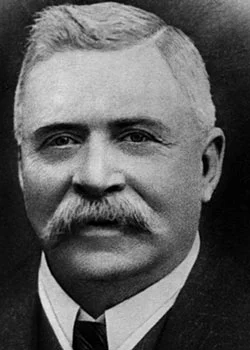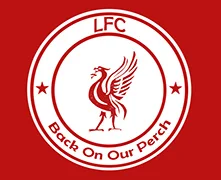Liverpool FC Managers - Tom Watson

Date of Birth: 8th April 1859
Place of Birth: Newcastle-upon-Tyne
Nationality: British
Playing Career: N/A
Previous Managerial Posts: Newcastle East End, Newcastle West End, Sunderland
Hired as Liverpool Manager: 25th July 1896
Arrived From: Sunderland
Left Liverpool: 6th May 1915
Club Honours Won:
League Championship 1900/01, 1905/06
Second Division Title 1904/05
Personal Honours Won: N/A
Passed Away: 6th May 1915
Tom Watson: The Forgotten Giant of Liverpool Football Club
Tom Watson may not be a household name among modern football fans, indeed, many young Liverpool fans may not have heard of him, but his influence on Liverpool Football Club, particularly during its formative years, cannot be underestimated. As the first manager to lead the club to a league title, Watson will forever hold a unique place in the club's history, helping transform the club from a young upstart into one of the most successful and storied clubs in football history.
Early Life and Career
Born on April 1, 1859, in Newcastle upon Tyne, Watson began his football career at local rivals Sunderland, taking up a managerial role in 1889. At that time, with football still in its infancy, clubs were often run by committees or club secretaries, rather than individual managers, so Watson's appointment as manager was pioneering, and it quickly brought Sunderland plenty of rewards. Under his stewardship, Sunderland won three league titles in the 1890s, earning them the nickname "The Team of All the Talents."
Such success would not go unnoticed, and in 1896, Liverpool Football Club - still a relatively young club founded just four years earlier - came calling. Despite the huge success he had enjoyed at Sunderland, Watson accepted the challenge offered by Liverpool, a club with big ambitions but little to show for it at that point.
Transforming Liverpool
When Watson took charge at Liverpool, the club was still finding its feet in the First Division, (the top tier of English football at the time), having bounced between the First and Second Divisions in the previous three seasons. He brought with him a wealth of experience, tactical knowledge, and a keen eye for talent, all things he would use to great success at Anfield. Watson was also known for his methodical approach to the game, which involved meticulous planning and a deep understanding of player strengths and weaknesses - all key aspects of a modern-day manager, but revolutionary back in the late 19th century.
Although Watson did not lead Liverpool to immediate success, results on the pitch steadily improved, and in 1900/01, Watson's Liverpool clinched their first-ever First Division title. The team was known for its solid defense, tactical discipline, and effective, though not flamboyant, attacking play. Watson's Liverpool played a style that emphasized teamwork and collective effort over individual brilliance, a philosophy that resonated with the working-class supporters of the club and is still evident to this day.
Legacy and Influence
Watson's influence on the club cannot be ignored, with the team winning a second First Division title in 1905/06, establishing Liverpool as a major power within the English game. Many of his methods, particularly his detailed preparation and focus on fitness and discipline, were years ahead of their time.
He was also responsible for recruiting many fine players, but his most influential signing was that of Alex Raisbeck, a fiery Scotsman widely regarded as one of the finest of his generation.
Watson remained at Liverpool until his untimely death in 1915, having overseen 740 games in charge of the club. To this day, only Bill Shankly, with 753 games, has taken charge of more games as manager of Liverpool Football Club.
At his funeral, on the 11th of May 1915, his coffin was carried by 8 of his players.
Under Watson's leadership, Liverpool not only achieved success on the pitch but also built a strong organisational foundation. He was instrumental in shaping the club's identity and establishing a culture of success that would endure for decades and helped lay the foundations for future successes under legendary managers such as Bill Shankly and Bob Paisley.
Get the latest LFC Merch from the Official LFC Club Store.
Managerial Stats
TOTAL | WON | LOST | DRAWN | GF | GA | |
League | 678 | 297 | 253 | 128 | 1123 | 980 |
FA Cup | 63 | 31 | 19 | 131 | 98 | 75 |
League Cup | 0 | 0 | 0 | 0 | 0 | 0 |
European | 0 | 0 | 0 | 0 | 0 | 0 |
Other | 1 | 1 | 0 | 0 | 5 | 1 |
Totals | 742 | 329 | 272 | 141 | 1226 | 1056 |
Managerial Milestones
- Hired as Liverpool manager in 1896
- Led Liverpool to their first 'First Division' title in 1900/01
- Led Liverpool to their second 'First Division' title in 1905/06
- Led Liverpool to their first FA Cup Final in 1913-14, where they lost 1 - 0 to Burnley
- Spent 17 years as manager of LFC
- Took charge of 740 games as manager, a record only bettered by Bill Shankly
Tom Watson Quotes
There are no quotes attributable to Tom Watson at this time.
What others said about Tom Watson
"And how worthily Tom bore out the confidence then placed in him at the time and the proud records of the Liverpool Club have since shown. He fulfilled every promise his earlier promise held out. He brought fame and fortune to his players and to his club, and enjoyed here, as he often admitted to the writer, some of the warmest and most cherished friendships of his whole life."
Victor Hall, a reporter for the Liverpool Echo, writing about Tom Watson in 1924
"A cool corner of Anfield Cemetery had been chosen. The sun’s rays shaded his last resting place. “Tom” was buried there. The day was beauteously fine, and the setting of the last act was all peaceful. The whole sportsworld seemed to be represented. The late manager of the Liverpool Football Club had no enemies and the far-stretching reach of his works – charity being placed No. 1 – was in a measure shown by the representative gathering which attended to pay its last tribute to an esteemed man."
Unknown author, reporting on the funeral of Tom Watson in the Liverpool Echo in 1915
